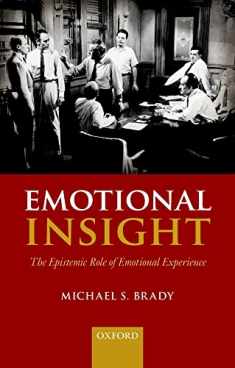
Emotions, Value, and Agency
Book details
Summary
Description
The emotions we experience are crucial to who we are, to what we think, and to what we do. But what are emotions, exactly, and how do they relate to agency? The aim of this book is to spell out an account of emotions, which is grounded on analogies between emotions and sensory experiences, and to explore the implications of this account for our understanding of human agency. The central claim is that emotions consist in perceptual experiences of values, such as the fearsome, the disgusting or the admirable. A virtue of this account is that it affords a better grasp of a variety of interconnected phenomena, such as motivation, values, responsibility and reason-responsiveness. In the process of exploring the implications of the Perceptual Theory of emotions, several claims are proposed. First, emotions normally involve desires that set goals, but they can be contemplative in that they can occur without any motivation. Second, evaluative judgements can be understood in terms of appropriate emotions in so far as appropriateness is taken to consist in correct representation. Third, by contrast with what Strawsonian theories hold, the concept of moral responsibility is not response-dependent, but the relationship between emotions and moral responsibility is mediated by values. Finally, in so far as emotions are perceptions of values, they can be considered to be perceptions of practical reasons, so that on certain conditions, acting on the basis of one's emotions can consist in responding to one's reasons.


We would LOVE it if you could help us and other readers by reviewing the book
Book review




